Marie-Anne, who we work with, wrote this article for us about her recovery
journey, and how we are helping her to get a University Degree in Criminology.
My name is Marie-Anne. I first became involved with Future Pathways to help find my care records and piece my life together. I don’t think I was fully prepared for the rollercoaster that would be presented with once I received my records and realised that I was definitely in fact a survivor of multiple childhood traumas.
I became homeless for quite a number of years and didn’t address the trauma until I reached my late 20s. By then, I had enduring mental health difficulties.
That being said, I don’t regret knowing what had happened to me in early childhood and teenage
years. It did take more than a decade though to take back my life and own my own journey.
I started with an amazing mental health charity that helped me to slowly regain my self-esteem.
I then found an organisation called Venture Scotland, where I took part in a personal
self-development outdoor adventure programme. That took nearly two years.
Eventually, I became involved with Future Pathways. I may be biased, but they became my
absolute heroes. I don’t think I would have had the chance to reach my full potential through
learning, education, and self-discovery, if it wasn’t for the all the support and encouragement from my coordinator Suzie and from Future Pathways as a whole.
My dream was to study Criminology and Criminal Justice, as these have been my absolute passion for as long as I can remember.
With experiencing abuse and trauma in my past, I also wanted to reclaim my life and regain some form of empowerment.
So, I started a BA (Hons) Degree in Criminology with The Open University in Scotland. So far, I
have completed four years and graduated with a Diploma of Higher Education in Criminology. I
still have some way to go though: I have two more years left before I complete my honours
degree.
This journey I have been on has been emotional, enlightening, difficult, brave and motivational.
I really don’t know where I would be in terms of my self-worth and growth without the massive
contribution from Future Pathways.
Ashley created these images especially for our December newsletter.
She said: “I’ve loved art ever since I was a child, but after leaving school I never really picked up a pencil until lockdown. Then I got into painting at home, with the help and support of Future Pathways. I recently started an online art course. I am learning so much in this journey, namely patience. I am the type who likes it done as quick as possible, but I know a realistic picture isn’t going to take less than 20 or 30 hours. I made these three art pieces over 5 days (no mean feat).”
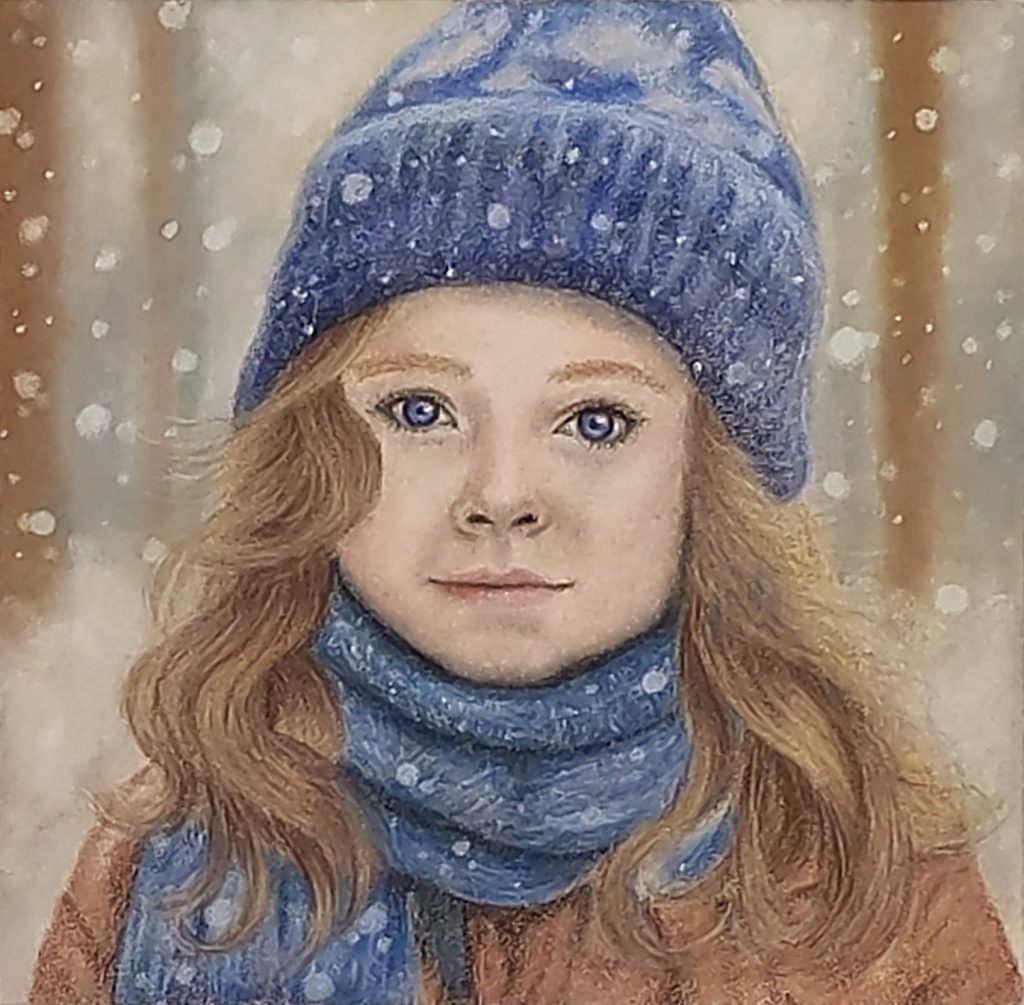
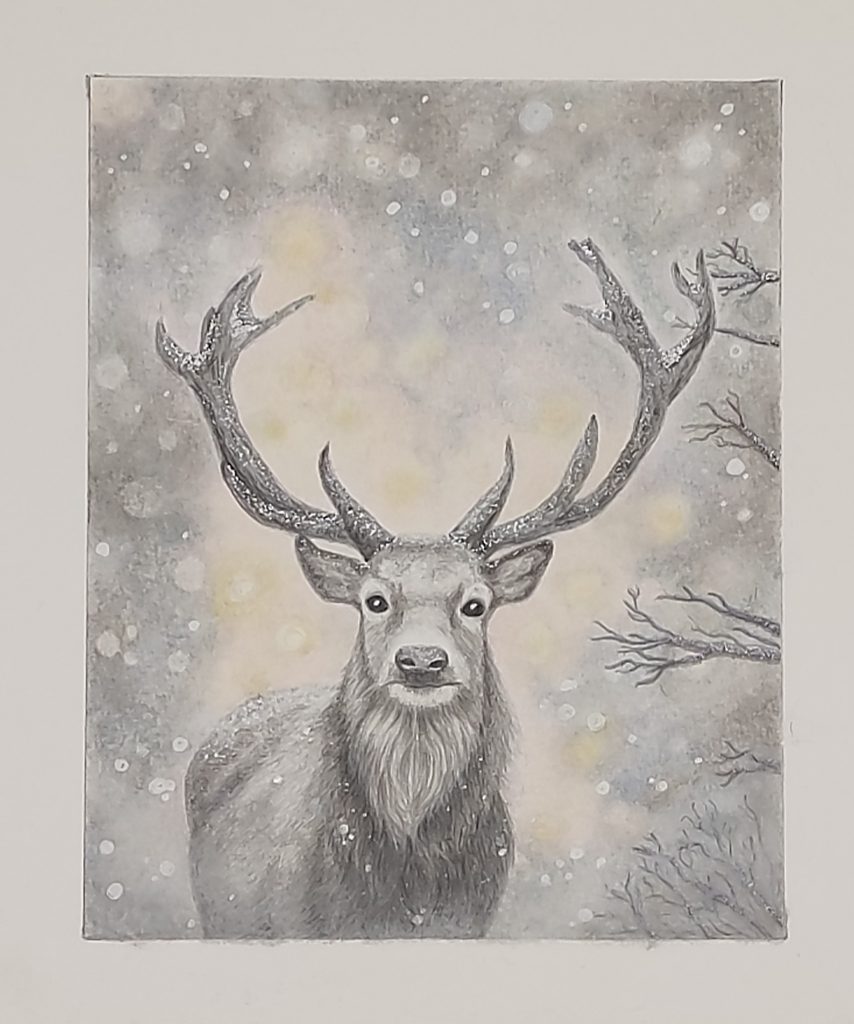
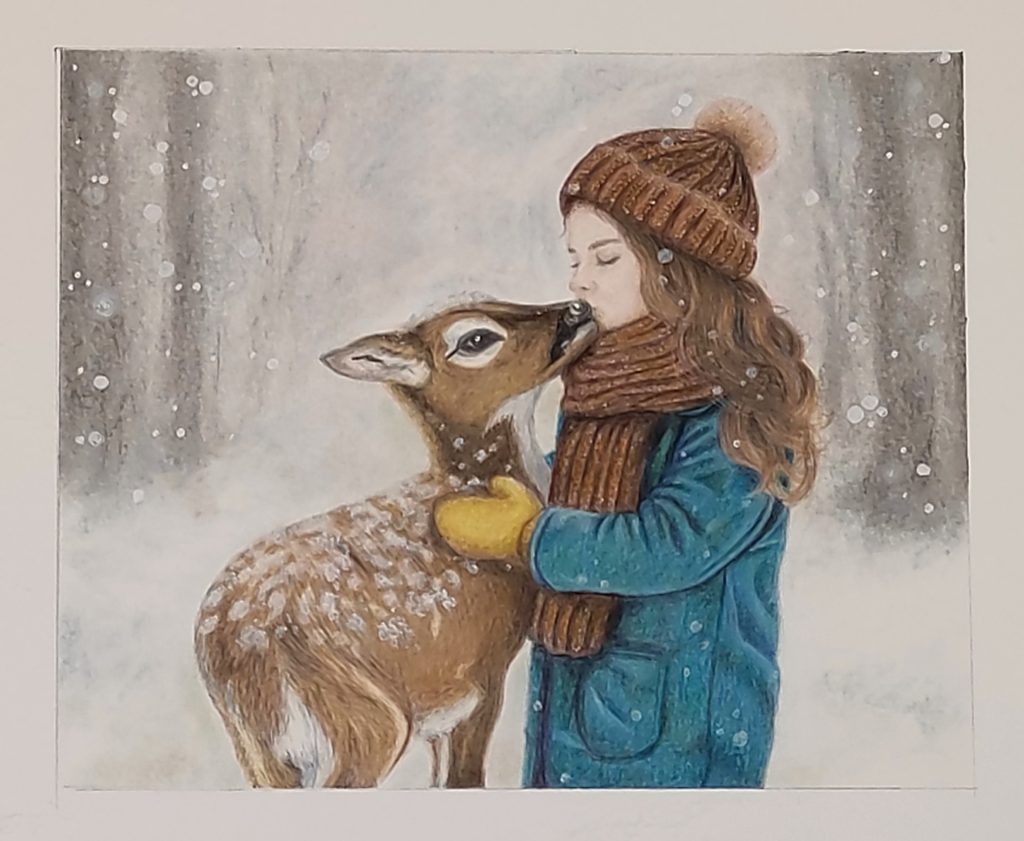
Pat shares his photographs with us as part of our Winter newsletter.
Pat says: “Two pics at Fort William, Scotland, and one of my dog Chong with Hector the turtle.”

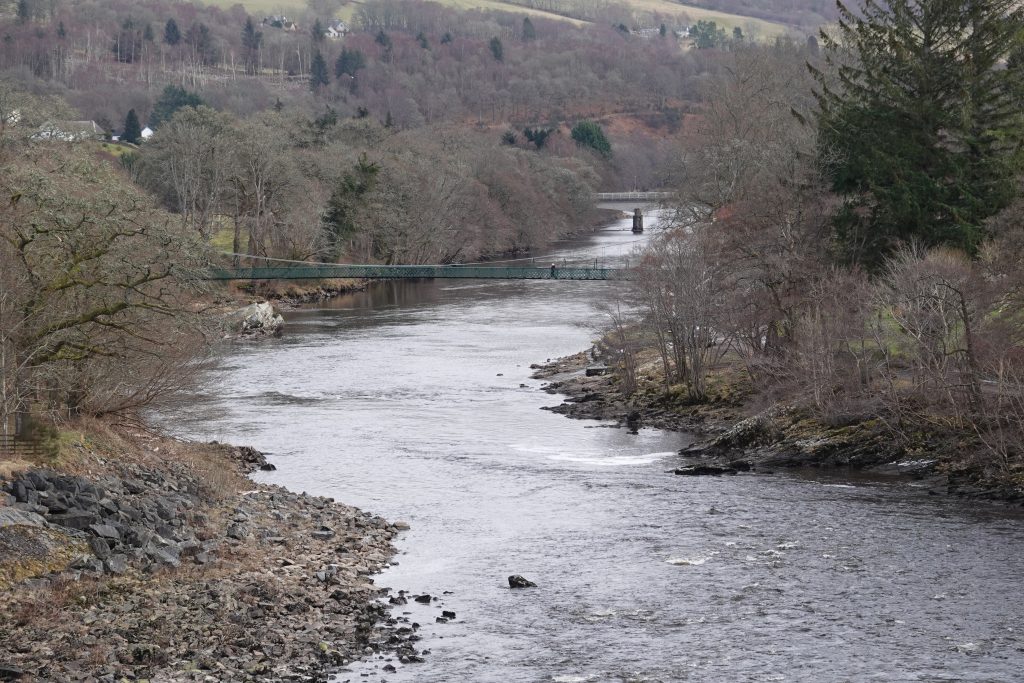

In this feature, we take a look at our work from 2023, covering January to November. The round-up below shows key information about the work we do, shining a light on who we work with, how they feel and the difference made to people’s lives across Scotland, the wider UK and beyond.
What did we do?
Who did we work with?
We worked with people from all over the world, but most people who registered with us live in central Scotland.
More younger people have registered with us over the last year, and the average age of people registered with us has decreased.
Through our new ‘About Me’ form we learned that people we support are more likely to experience inequalities like homelessness, addiction, criminal conviction, and disabilities and health conditions that affect their everyday life.
We worked with 69 Delivery Partners offering a wide range of different types of support.
How did people feel when they engaged with us?
We learned more about people’s experiences with us through our new feedback forms.
Everyone who gave us feedback on our website felt their experience with Future Pathways was “mostly positive”.
Everyone who gave us feedback after reviewing or ending their support felt understood and cared about by Future Pathways, and that they could trust the service.
Here are words people we support used to describe our service:
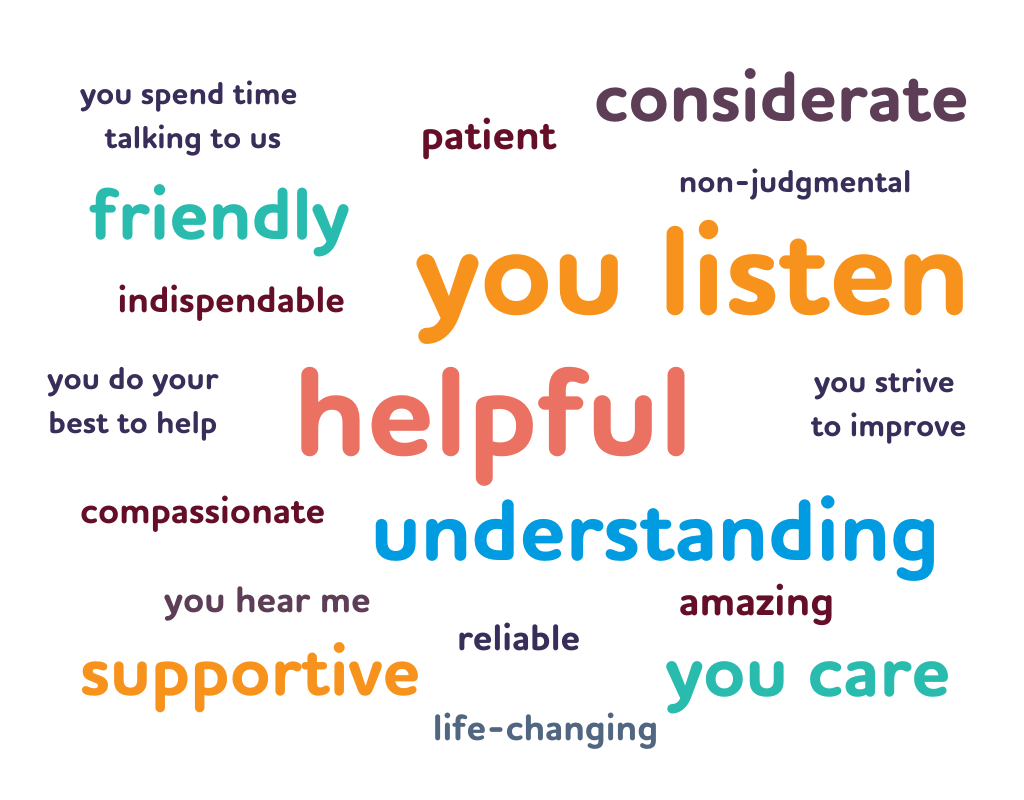
Delivery Partners told us they feel valued by Future Pathways. The most common word Delivery Partners used to describe Future Pathways was “collaborative”. Most Delivery Partners who answered our questionnaire told us that working with Future Pathways was different to working with other services. Delivery Partners told us that our transparent feedback, open-ness to dialogue, and focus on learning and improvement made Future Pathways different.
What did people learn and gain?
Most people who gave us feedback after reviewing or ending their support told us they knew what changes they want to make in their life.
Most people told us they knew more about their strengths and what they can do.
Most people also felt they had opportunities to influence how Future Pathways develops.
Most Delivery Partners who responded to our questionnaire shared they had learned more about the people we support through our work together.
What did people do differently?
Everyone who gave us feedback after reviewing or ending their support felt able to access support that is right for them. Most people also agreed that they have taken steps towards their goals.
Most Delivery Partners told us that they had made changes to how they work with people because of what they have learned through working with Future Pathways.
What difference did we make?
Most people who gave us feedback after reviewing or ending their support felt more independent. Most people strongly agreed that they now feel more hopeful about the future. Some people told us that their life was better overall.

Our Registration Line will close on Thursday 21 December at 4pm. It will open again on Friday 5 January at 10am.
These are only the dates when Future Pathways will be closed over the Winter period.
Other services may close and re-open on different dates.
Winter can be a difficult time. If you are finding things hard, you can contact one of the following services:
The Samaritans
The Samaritans offer a safe place for you to talk any time you like. You can talk in your own way about whatever is going on. They have a helpline, email service, letter service and a self-help app.
Helpline open 24 hours a day, 365 days a year.
Phone for free on 116123 www.samaritans.org
Breathing Space
Breathing Space is a free and confidential phone service for anyone in Scotland over the age of 16 who is feeling low, depressed or anxious.
Open 6pm to 2am Monday to Thursday, and 6pm to 6am Friday to Sunday.
Phone for free on 0800 83 85 87 www.breathingspace.scot
Shout
Shout is a free, confidential, text messaging support service for anyone who is finding it difficult to cope.
Text SHOUT to 85258 giveusashout.org
In September 2023, Future Pathways started using new ways of gathering feedback about people’s experience with the service.
Sharing your feedback with us means we can keep improving Future Pathways and get better at helping the people we support. And that is something that is very important to us.
Since September, 7 people have given us feedback. Most of this has come through the new form on our website. Here are some of the things we learned.
Most people said that their experience with Future Pathways had been mostly positive.
People described Future Pathways as:
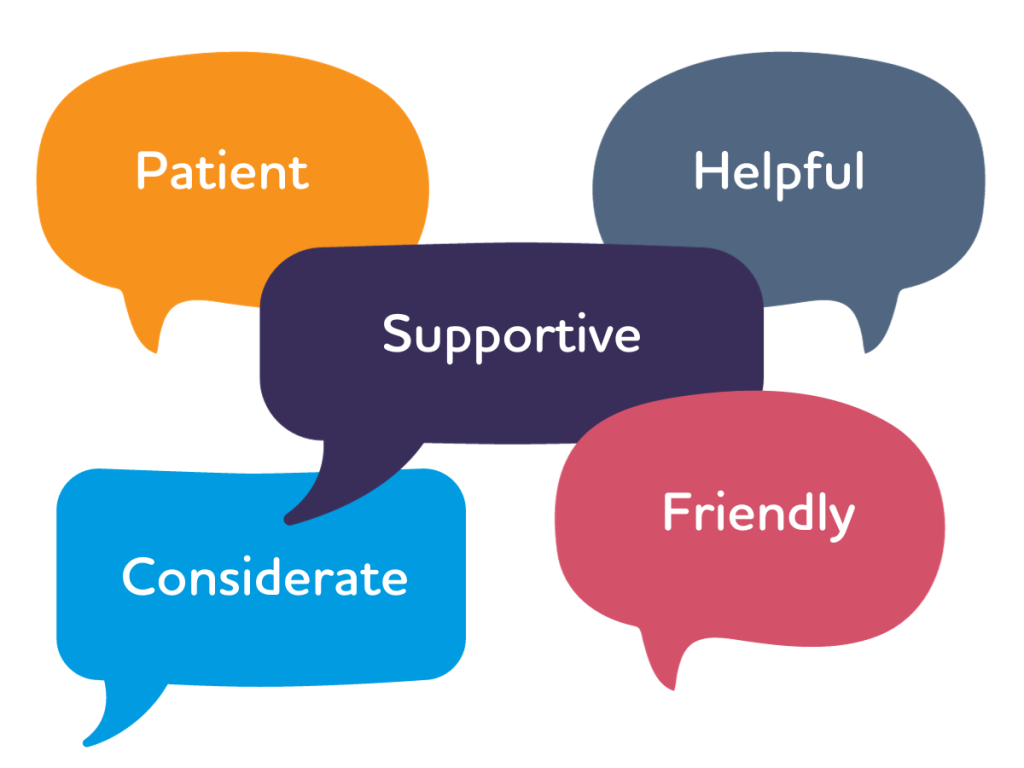
People said that they feel we listen to them, do our best and work hard to improve. People also said that they liked having access to different types of support.
People told us about changes in their lives that we helped them to make. Two people said that we helped them to reconnect with family members. One person told us that our support helped them survive a difficult time. Another said that Future Pathways helped them get out and about. Another is writing a book with our help.
People suggested ways that we could improve, such as:
• working with local employment services to help people with mental health challenges find work
• making our waiting list better
• reaching out to more people who could benefit from the service.
You can give us feedback at any time through our feedback page on our website.
If you would like to get a copy of the feedback form by post instead, you can let us know by:
• emailing engagement@future-pathways.co.uk
• writing to us at Future Pathways, 40 Shandwick Place, Edinburgh, EH2 4RT
• speaking to your Support Coordinator
• calling our Registration Line on 0808 164 2005
We want to hear your feedback about what we do well and how we should improve.
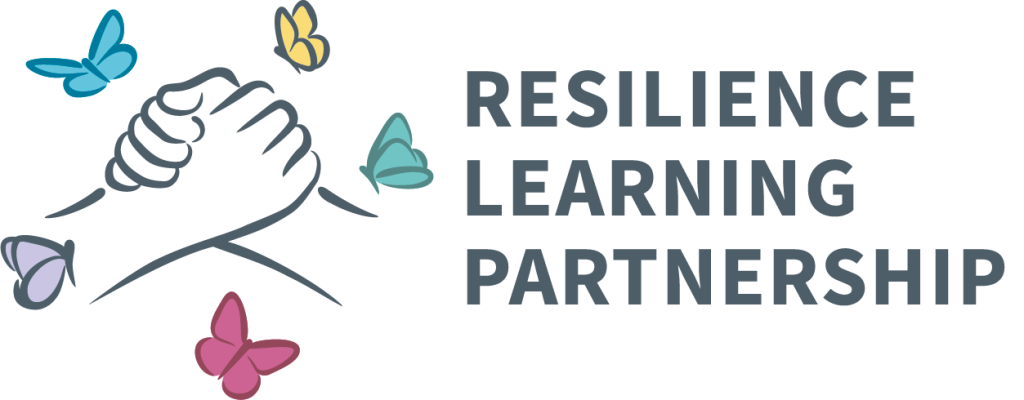
We are delighted to share a new resource from one of our learning partners, the Resilience Learning Partnership (RLP). Together with partners from the National Trauma Transformation Programme, they have created a Roadmap for Creating Trauma-Informed and Responsive Change.
The National Trauma Transformation Programme comprises Resilience Learning Partnership, Scottish Government, COSLA, NHS Education for Scotland and the Improvement Service.
RLP supports the National Trauma Transformation Programme with the development of the mechanisms that help facilitate people with lived experience of trauma being meaningfully involved in the design and delivery (where possible) of services.
View the new publication here – Roadmap for Creating Trauma-Informed and Responsive Change: Guidance for Organisations, Systems and Workforces in Scotland.
This resource is designed to be used flexibly and independently by services and organisations across all sectors of the workforce in Scotland, to help identify and reflect on progress, strengths, and opportunities for embedding a trauma-informed and responsive approach across policy and practice.
The roadmap draws on what people with lived experience of trauma have said would help improve access to support, reduce re-traumatisation, recognise resilience and support recovery, and has input from leaders across services/ organisations have said support them to implement a trauma-informed and responsive approach.
For more information about psychological trauma, its prevalence and impact and the wider work of the National Trauma Transformation Programme, please visit: www.traumatransformation.scot
Yvonne shares her pottery creations with us.
“I recently participated in my first pottery course. I found it to be very therapeutic and being able to express my creativity via pottery has proven, as a beginner, that I have a natural flare for it. I thought I would share my work with you. Here are pictures of my creations, one of which is a Future Pathways mug.”
Lauchlan shares his paintings of the people and places of Glasgow.
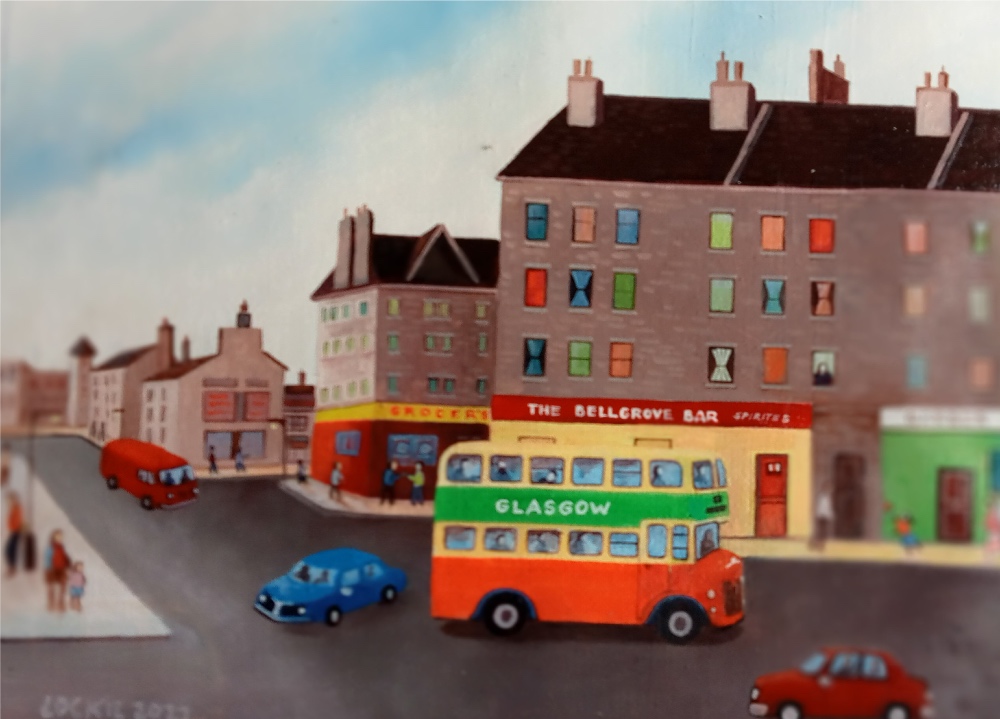
‘Bellgrove street in the east end of Glasgow where I used to hang around as a teenager.’
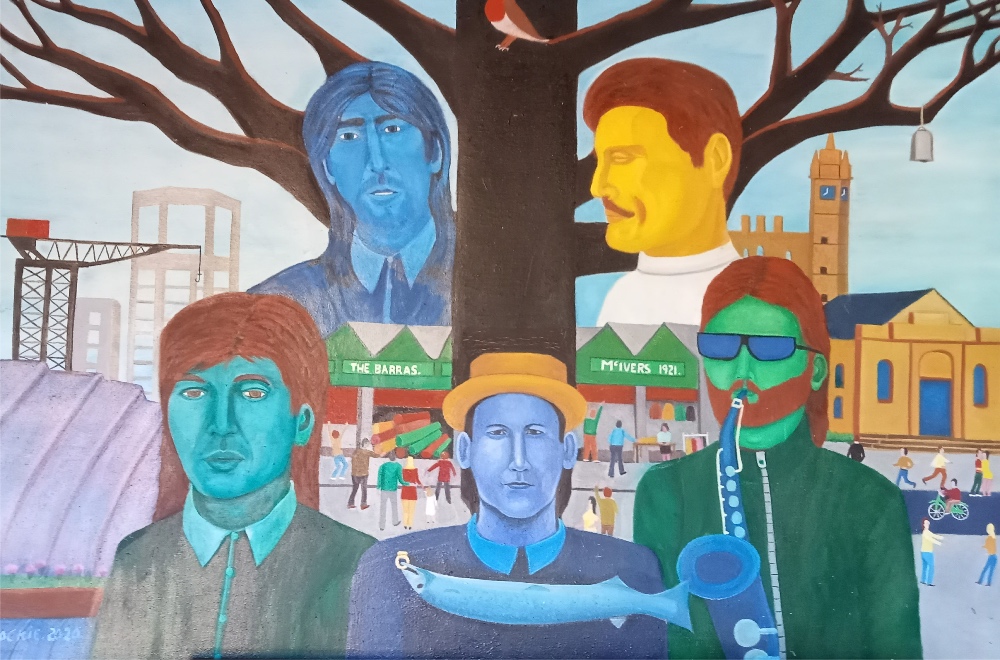
‘Picture of the band Scheme. The tree has the Glasgow coat of arms. In the background is some of Glasgow landmarks – Glasgow cross, the Barras, the Royal conservatory.’
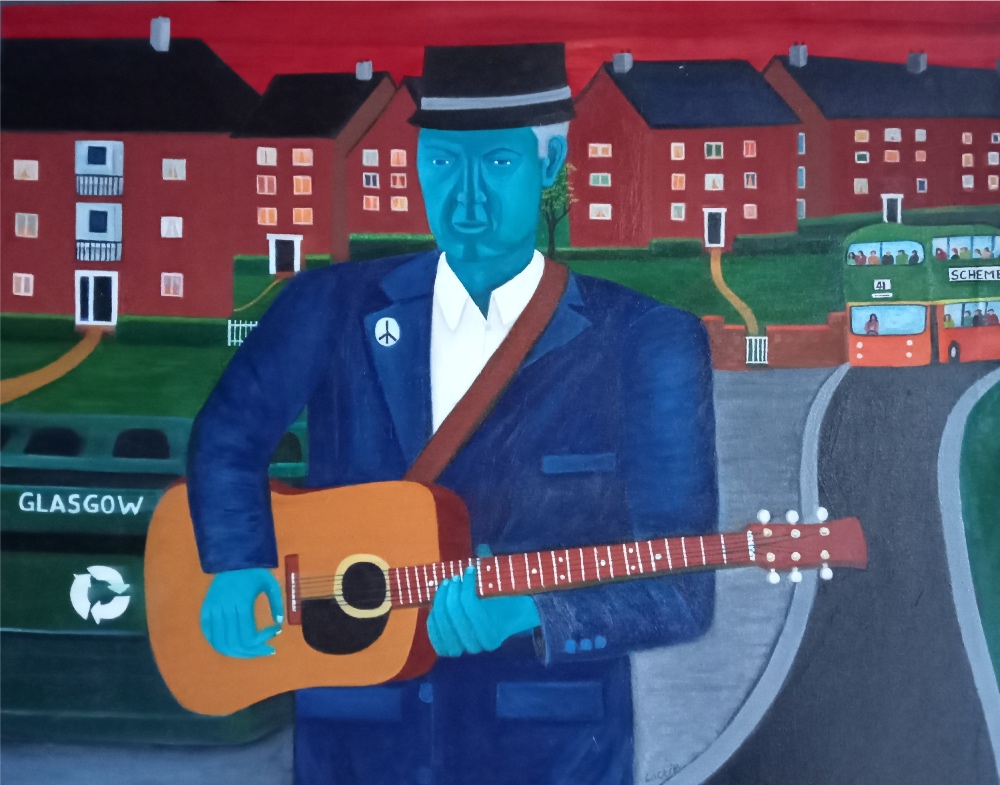
‘Denny Oliver – lead singer and songwriter of the Glasgow band called Scheme. The painting is in the Scheme of Easterhouse. Denny has also passed away. Mr Oliver wrote and sang songs that inspired the youth and his songs often touched on political issues of the day. Mr Oliver also worked voluntarily teaching guitar and piano to the homeless.’
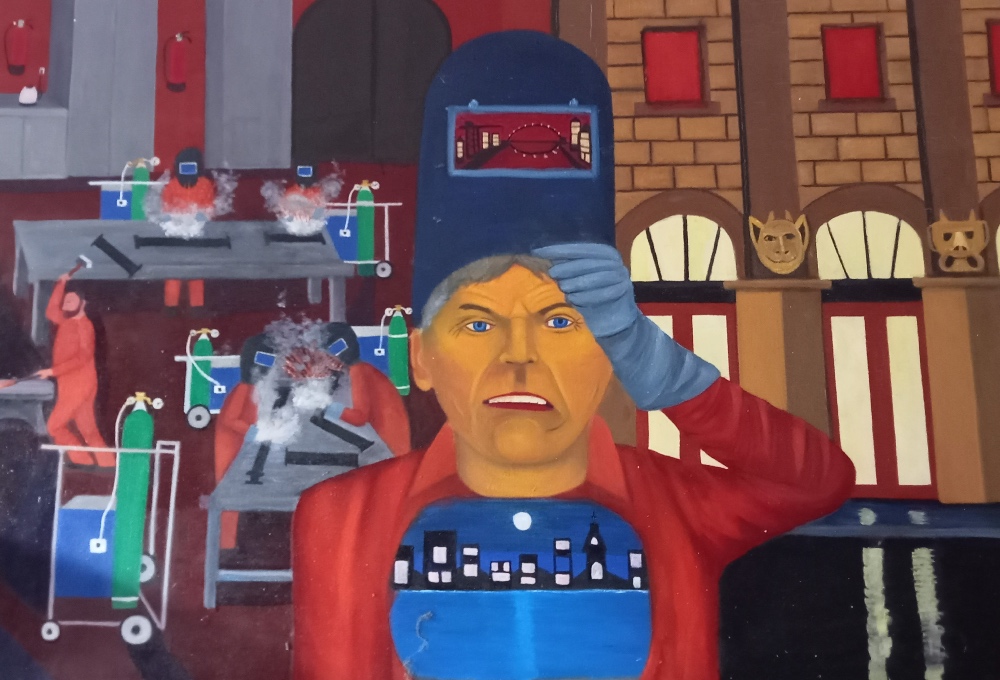
‘My friend Robert Fullerton sadly now passed away.’
During the winter months, the days are shorter and the weather can be bad. Sometimes you might find yourself not doing much. Here are some ideas that can help you stay happy, suggested by the mental health charity Health in Mind.
At this time of year, you might find you have stopped doing the things that make you happy, and are just counting down the days to spring. Your mental health may be the last thing on your mind, but we know just how important it is. Here are some ideas to boost your wellbeing this winter.
Keeping a positive focus
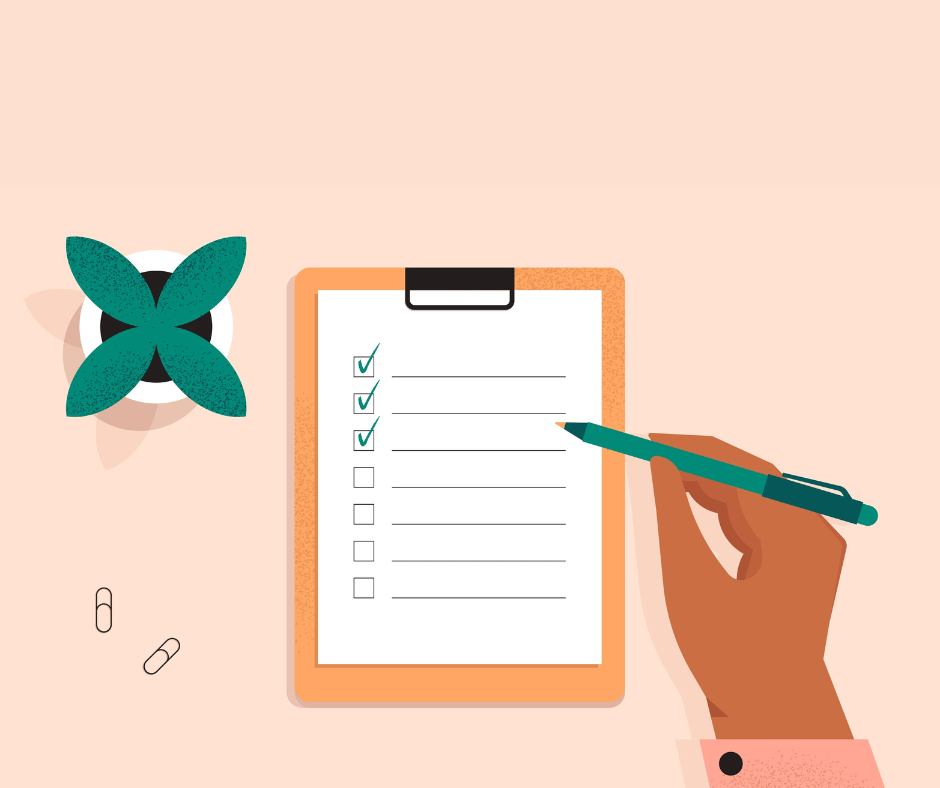
1. Make a list of the things that are most important in your life.
This could include people you are close to, or tasks and hobbies you enjoy
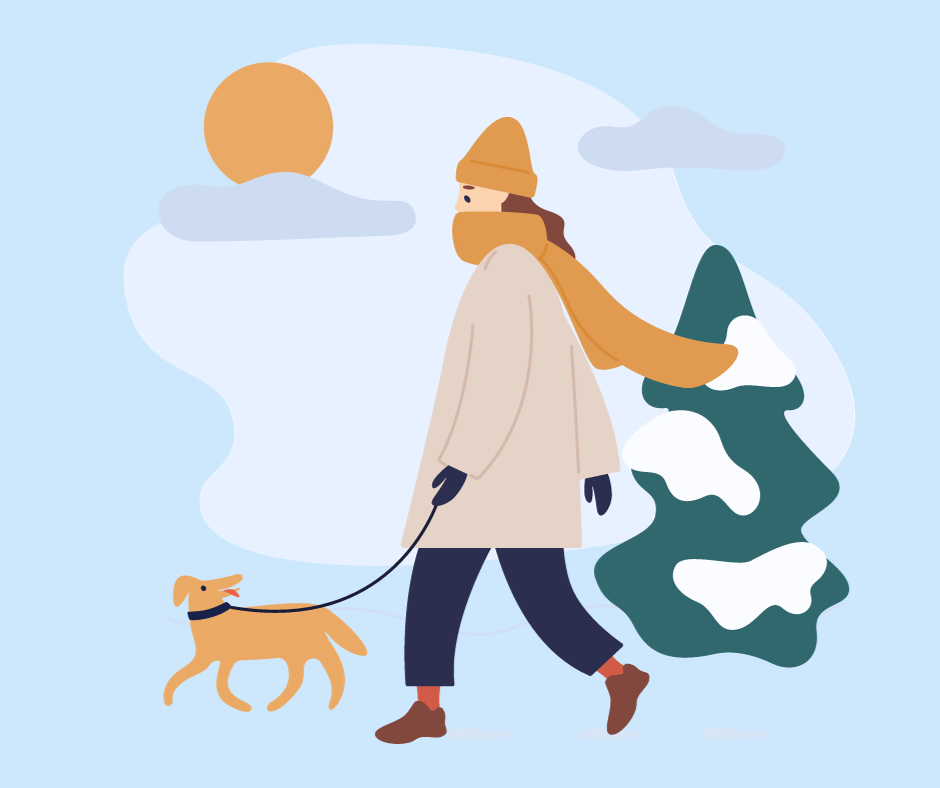
2. Think about different activities that focus on the things that are most important in your life.
Now that you have a list of the most important things in your life, come up with activities that involve these important things. A good way of doing this is by organising the activities into things you can do now. Then things you can do in the next week or two. Then things you can do in the a few weeks or months. For example, I will go for a walk around the park tomorrow, and I will send a card to a friend next week

3. Create a plan for your activities.
For each activity, think about and write down:
• what day you will do it
• what time you will do it
• where you will do it
• the things you need to do it

4. Look back at your list
Take time to look back at your list of what is most important to you. This can help you think about whether what you are doing is what you would really like to be doing and focusing on what is important to you.
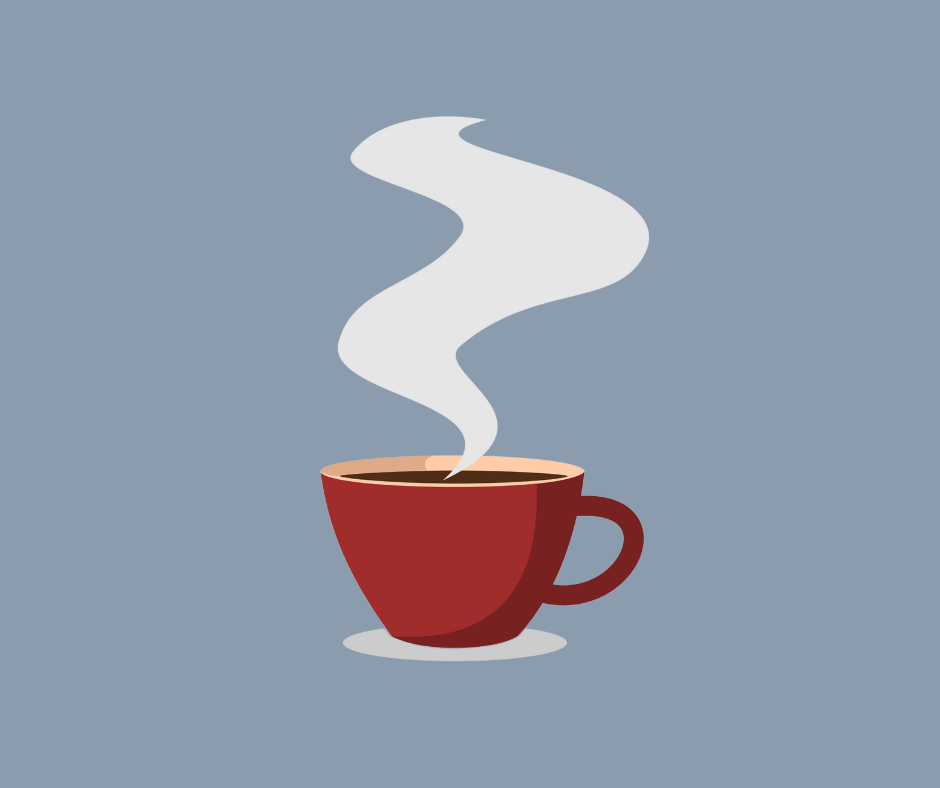
Your 5 Senses Scan
Grounding exercises are often used to help us stay connected to the present moment. They can help us manage anxiety, stress, or difficult emotions. The grounding exercise below asks you to make a list using your senses. You can write the list down, say it out loud or say it in your head.
Make a list of:
5 things you can see
4 things you can hear
3 things you can touch
2 things you can smell or taste
Take 1 deep breath.
About Health in Mind
Health in Mind is one of the partners of the In Care Survivors Alliance, which runs Future Pathways. It is one of Scotland’s best-known mental health charities. Since 1982, it has developed to meet people’s changing needs, and it now promotes positive mental health and wellbeing in local communities across Scotland.
It builds hope, resilience, and understanding of mental health and wellbeing. It does this through support, collaborations, campaigns and resources. People are at the heart everything Health in Mind does. Each year the charity helps around 4,000 people to live the life they want to live.
